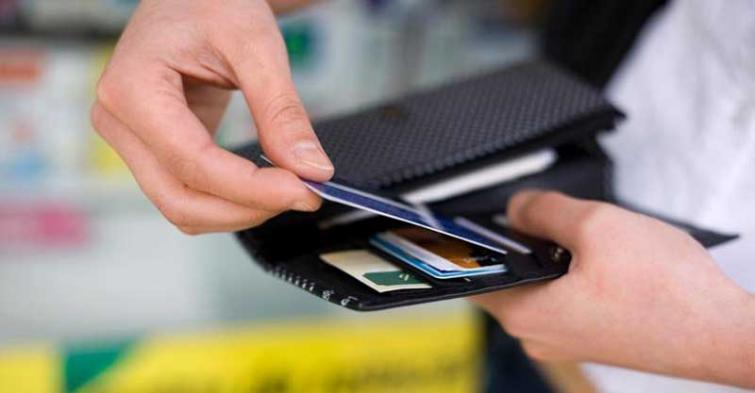
If you use a credit card sensibly, it can help you build a healthy credit score and a strong credit history. However, first, you should know how to apply for a credit card that is suitable for your financial requirement. As a new user, you may make a wrong choice and end up accumulating debts.
Well, financial institutions have made it easier to apply for credit card in a few simple steps. Enlisted below are 4 points that you must follow if you are a credit card applicant.
1. Check your credit score
Your credit score is one of the most crucial credit card eligibility criteria. It indicates your creditworthiness and the way you have handled your finances in the past. It is based on how you have repaid the dues and the amount of credit you have used.
Your credit score, computed by CIBIL, is a three-digit rating which ranges from 300 to 900. Check if you have a credit score above 750 to avail a credit card.
2. Find a suitable credit card
Whether a credit card is suitable or not depends on a lot of factors.
â— Check out the rate of interest on your preferred card.
â— Know about the features and benefits it comes with and if that can make your life easier. For example – frequent flyers should go for travel credit cards while shopaholics should opt for retail credit cards.
â— Check what additional costs you need to pay including processing fees, balance transfer fee, etc.
â— Learn about the reward programs that particular credit card comes with.
Credit cards like the Bajaj Finserv RBL Bank SuperCard offer easy EMI options and welcome gifts of up to 20,000 reward points. Moreover, this credit card combined 4 powerful cards into a single one, making it more convenient for users.
3. Develop a repayment plan
Develop a suitable repayment plan of your bills per month. Keep in mind the type of interest rate offered by your lender. A variable interest rate affects the amount you owe at the end of each billing cycle.
Limit your spending to basic or essential needs only so that you can better manage your finances.
4. Consider a secured credit card if your credit score is low
If you plan to apply for a credit card, but your credit score is low, you can apply for a secured card. For that, you need to pledge a fixed deposit as collateral. The lender will adjust your outstanding amount from the fixed deposit if you happen to default on your card payments.
The card helps you to strengthen your credit score too. Additionally, the tenure of the fixed deposit should be six months. Usually, the credit card limit is 80% - 85% of the fixed deposit amount. Know how to apply for a credit card that is secured and matches your requirement.
Once you increase your CIBIL score with timely repayments of your dues, you can apply for an unsecured credit card and enjoy double the benefits and features.
Below-mentioned are four mistakes you should avoid when applying for a credit card.
1. Do not utilise your full credit
You must utilise only 30% - 50% of your credit limit. The strategy here is to use your card for recurring payments such as a mobile bill. You can track your card’s utilisation ratio on your lender’s website.
Using the full credit limit creates a negative impact on your CIBIL score as lenders consider you as a credit hungry borrower.
2. Don’t carry an overdraft
Try not to default on your credit card payment. Financial institutions provide you with a grace period of approximately 21 days. You need to pay off the total amount due within this period to avoid attracting financial charges.
Note – Carrying an overdraft severely affects your credit score.
3. Do not close old credit cards
A user holding multiple credit cards should not close old cards, even if they don’t use those anymore. Keeping the existing credit cards helps increase your credit score and create a strong financial history.
4. Don’t treat credit cards as a free source of money
Credit cards come with an interest rate that may be floating or fixed. Leading financial institutions like Bajaj Finserv have interest-free cash withdrawal for up to 50 days. Only a nominal processing fee is charged on transactions.
Remember that these credit cards are not free money provided to you. You need to repay what you utilise; so, ensure to be responsible.
Bajaj Finserv brings pre-approved offers on credit cards, personal loans, home loans, business loans, and a range of other financial products. It saves time and simplifies the process of availing credit. You can check out your pre-approved offer by sharing a few basic details online.
Thus, know how to apply for a credit card and use it wisely. Make sure you choose the best credit card and keep track of your spending by reviewing your statements regularly.
Author Bio:
Uday is a passionate blogger. He has expertise in writing finance articles.He have been serving society as a financial adviser. He loves keeping himself up-to-date with the news and happenings around. He is always open to learning and shares his experiences on his onlinestory.in
Support Our Journalism
We cannot do without you.. your contribution supports unbiased journalism
IBNS is not driven by any ism- not wokeism, not racism, not skewed secularism, not hyper right-wing or left liberal ideals, nor by any hardline religious beliefs or hyper nationalism. We want to serve you good old objective news, as they are. We do not judge or preach. We let people decide for themselves. We only try to present factual and well-sourced news.







